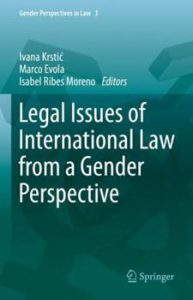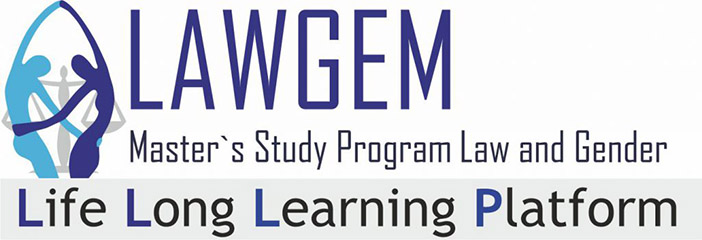The implementation of LAWGEM project has led to the publication of books of great importance not only for teaching staff, but also for legal practitioners, students, as well as anyone else interested in acquiring a better understanding of contemporary gender competent legal questions.
This also relates to the books published by Springer, in the frame of book series ‘Gender Perspectives in Law’, edited by Prof. Dr. Dragica Vujadinović and Prof. Dr. Ivana Krstić. The book series represents the added value to the LAWGEM project and which discusses all-encompassing gender-competent legal questions. Having a gender-competent approach is required when considering the highest values and normative standards of modern international, European, and national law. Raising awareness about gender equality issues means investing in the creation, interpretation, and implementation of legislation that is more fair, just, and equitable and will also contribute to a comprehensive understanding of social reality, as well as to gender-competent political, legal and economic decision-making and public policies.
The third book published within the series is the book edited by Ivana Krstić, Marco Evola and Maria Isabel Ribes Moreno Legal Issues of International Law from a Gender Perspective (Springer Nature, Cham, 2023, XVIII + 224 pages). This book offers a new perspective on international law, which was, for centuries, male-dominant and gender-blind. However, this gender blindness has led to many injustices, the failure to recognize certain rights, and to impunity for serious crimes. The book examines the development of gender perspectives in various branches of international law, while also discussing and explaining certain universal standards. However, particular attention is paid to the European human rights system. Accordingly, the book provides detailed explanations of the EU’s external policies in relation to sex, sexual orientation, and gender identity. Also, there is a special focus on the relevant jurisprudence of the European Court of Human Rights in relation to gender and sexual orientation, female reproduction, and sexuality. The authors explain not only the importance of an adequate legal framework for combating gender inequality but also the detrimental effects of deeply rooted gender stereotypes and prejudices.
Subsequently, the development of particular branches is presented, such as a gender-sensitive approach to the prevention of war crimes, gender perspectives in refugee law, and the evolution of gender-sensitive environmental law. In addition, the problematic situation of discrimination in the workplace is addressed from various perspectives.
Many discussions, especially among EU member states, are reserved for the issue of women’s participation in managerial boards, while the growing awareness of gender equality in international trade agreements represents another interesting topic. Lastly, the book offers a historical perspective on the development of international law in the interwar period, with a particular focus on the situation in Yugoslavia.
You can access the book by clicking this link:
https://link.springer.com/book/10.1007/978-3-031-14706-7


